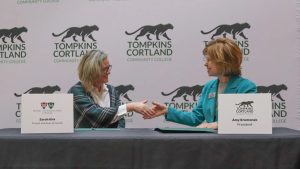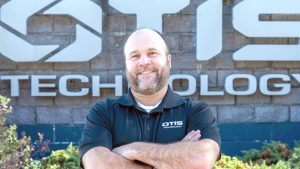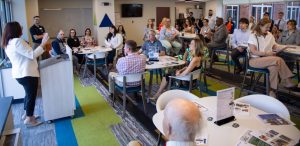MARCY — Eleven faculty-led projects at SUNY Polytechnic Institute received a total of $440,675 in round one, seed-grant funds, the university announced. SUNY Poly’s associate provost for research office received the applications from faculty, which were reviewed by peers who determined which projects would be supported. The money comes from SUNY Poly’s $2.7 million share […]
Already an Subcriber? Log in
Get Instant Access to This Article
Become a Central New York Business Journal subscriber and get immediate access to all of our subscriber-only content and much more.
- Critical Central New York business news and analysis updated daily.
- Immediate access to all subscriber-only content on our website.
- Get a year's worth of the Print Edition of The Central New York Business Journal.
- Special Feature Publications such as the Book of Lists and Revitalize Greater Binghamton, Mohawk Valley, and Syracuse Magazines
Click here to purchase a paywall bypass link for this article.
MARCY — Eleven faculty-led projects at SUNY Polytechnic Institute received a total of $440,675 in round one, seed-grant funds, the university announced.
SUNY Poly’s associate provost for research office received the applications from faculty, which were reviewed by peers who determined which projects would be supported. The money comes from SUNY Poly’s $2.7 million share of nearly $10 million in annual state funding to 14 SUNY campuses to expand research capacity, according to a SUNY Poly news release.
A total of 34 applications were received for the competitive first round. The 11 projects awarded funding are described in the release as follows:
• SUNY Poly President Winston Soboyejo, $52,000 for research with Theresa Ezenwafor and Lauren Endres on treatments for triple-negative breast cancer.
• Kazuko Behrens, $52,000 for a collaboration with Rebecca Weldon and Dan Jones that explores neurological and behavioral factors that correlate with the levels of sensitivity mothers exhibit while interacting with their children.
• Byeongdon Oh and Linda Weber, $52,000 for a collaboration with the University of California, Berkeley to develop an evidence-based prototype and policies to improve diversity, equity, and inclusion in STEM programs on college campuses.
• Patricia Roach, $52,000 to collaborate with Jerome Niyirora to use predictive analytics and machine-learning models to understand the interplay between adverse childhood experiences, war trauma, resilience, and physical/mental health outcomes in refugee populations.
• Jiayue Shen, $52,000 for a project in collaboration with Tabiri Kwayie, Desmond Klenam, Kwadwo Mensah-Darkwa, Henry Agbe, Sarah Osafo, Precious Osayamen Etinosa, Theresa Ezenwafor, and Winston Soboyejo to develop novel titanium alloys that could lead to advancements in biomedical implants.
• Arjun Singh and Priyangshu Sen, $52,000 for a project that aims to utilize machine learning and artificial intelligence applications and algorithms to solve problems related to terahertz (THz) hardware, propagation, and reliability issues.
• Mahmoud Badr, $32,000 for a project with Hisham Kholidy to enhance security and privacy in smart power grids by developing a framework for detecting electricity theft.
• Robert Edgell, $32,000 for a project with Bill Durgin and Juan Felipe Henao to develop The Sustainable Aerospace Energy Center, which will develop a decision-making framework to guide the aerospace industry toward more sustainable practices.
• Aarthi Sekaran, $32,000 for a collaboration with Ahmed Abdelaal to complete a detailed analysis of the upper trachea with a goal to develop a framework for enhanced design of mechanical ventilation assemblies.
• Adam McLain, $27,675 to lead a team to Nosy Hara, an island near Madagascar, to collect genetic data from a population of dwarf lemurs to better understand the level of genetic diversity in a small and isolated primate population and inform future conservation strategy.
• Rebecca Weldon, $5,000 to support an exercise that students in her research methods of psychology class will complete to evaluate information they are exposed to online with the goal of evaluating how effective the exercise is in reducing their susceptibility to misinformation.




